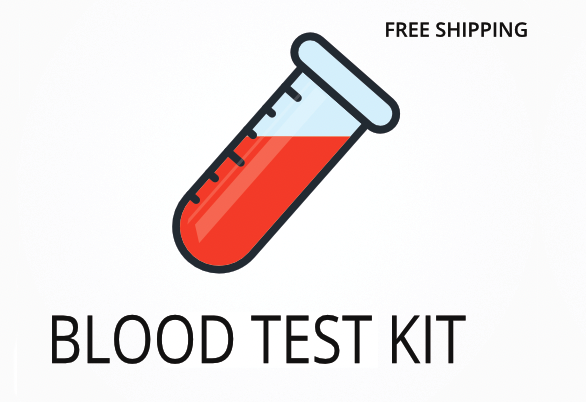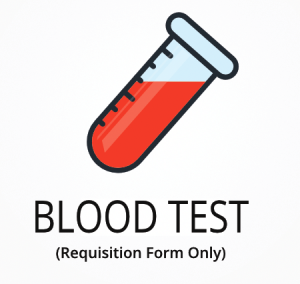Ordering the Rickettsia rickettsii/typhi IgG Antibody | New York
Testing for Rickettsia rickettsii/typhi IgG Antibody helps detect past or ongoing infection with bacteria that can cause Rocky Mountain spotted fever or typhus. These infections can lead to symptoms like fever, headache, muscle pain, and rash, and are often linked to tick or flea bites. Interestingly, some people may develop only mild symptoms or none at all, making lab testing important for those with unexplained symptoms after possible exposure.
Ordering this test provides several specific benefits:
- Identifies if your immune system has responded to Rickettsia bacteria.
- Helps your doctor confirm or rule out Rocky Mountain spotted fever or typhus.
- Supports early treatment decisions to prevent complications.
- Assists in tracking the progress of infection or response to treatment.
- Offers peace of mind if you have unexplained symptoms after a tick or flea bite.
Who Should Consider Rickettsial Antibody Testing
People who have recently spent time in wooded or grassy areas and later develop fever, headache, or a spotted rash may benefit from this test. For example, someone who enjoys hiking and later notices a tick bite followed by chills and muscle pain may want to check for Rickettsia infection.
Ordering this test may also be helpful in these situations:
- After travel to areas where typhus or Rocky Mountain spotted fever is common.
- When experiencing symptoms like joint pain, red eyes, or swollen lymph nodes after outdoor activities.
- If you have a history of unexplained fever and rash that did not respond to usual treatments.
- For people with weakened immune systems who are more likely to develop complications from bacterial infections.
- In cases where a family member or pet has been diagnosed with a tick-borne illness, as household exposure can occur.
Testing can help pinpoint the cause of symptoms like fever, rash, or muscle pain, especially when other infections have been ruled out. Delaying this test may allow the infection to progress, making it harder to treat and increasing the risk of long-term effects. To get clear answers and support timely care, consider ordering this test if you fit any of these scenarios.
Preparing for Rickettsia Antibody Screening
Fasting is not required before this test, so you can eat and drink as usual. Always follow any instructions your doctor or healthcare provider gives you to make sure your sample is collected correctly and your results are as helpful as possible.
Labs Included When Ordering Your Rickettsia rickettsii/typhi IgG Antibody | New York
| Test Name | Reference Range | What the Biomarker Means | Low and High Levels of Rickettsia rickettsii/typhi IgG Antibody |
|---|---|---|---|
| Rickettsia rickettsii/typhi IgG Antibody | Negative: <1:64 Equivocal: 1:64 Positive: >1:64 |
This test measures IgG antibodies, which show if your immune system has responded to Rickettsia rickettsii or typhi bacteria. A positive result suggests past or current infection, while a negative result means no detectable antibodies. |
High levels mean your body has likely been exposed to Rickettsia bacteria and may be fighting an infection or has fought one in the past.
Low levels mean there is no evidence of exposure or infection, or it may be too early for antibodies to appear. |
Reference ranges may change slightly as labs update their methods and standards over time.
Rickettsia rickettsii/typhi IgG Antibody FAQ
Is there Rickettsia rickettsii/typhi IgG Antibody testing near me?
This is a test kit that you can collect locally, and you can check the draw location link at the top of the page. Since symptoms like fever and rash can appear quickly after a tick bite, having a nearby collection site makes it easier to get tested without delay.
How do I interpret the test results?
While your treating physician should review your results, you can also use our one-on-one test results review service with our clinical team for a detailed explanation.
What is the cost of the test?
The price you see includes standard shipping to you and back to the lab, but draw fees may apply. Ordering this test can help you find out if a bacterial infection is causing your symptoms, so you can start the right treatment sooner.
How often should I retest?
Retesting is usually recommended 2-4 weeks after the first test if symptoms continue or if your doctor wants to track changes in antibody levels. Repeating the test can help confirm a new infection or show how your immune response is changing over time.
How accurate is the test?
This test uses an enzyme immunoassay (EIA) method, which is highly specific for detecting IgG antibodies to Rickettsia rickettsii and typhi. The test has a specificity of 98% and a sensitivity of 95%. TrueHealthLabs.com partners with CLIA-certified and CAP-certified laboratories to uphold rigorous testing standards for dependable results.
Important Notes
None.
Medical Review Board
Reviewed by Jeff Donohue M.D. from Body Logic and Brady Hurst DC, CCCN. Written by True Health Lab’s team of editorial health contributors.
Disclaimer: This information is for educational purposes only and not intended as medical advice. Consult your healthcare provider for personalized guidance.
Why Customers Trust True Health Labs - What People are saying
Also rated 4.6 out of 5 based on 3452 ShopperApproved reviews- See all TrueHealthLabs.com reviews.







